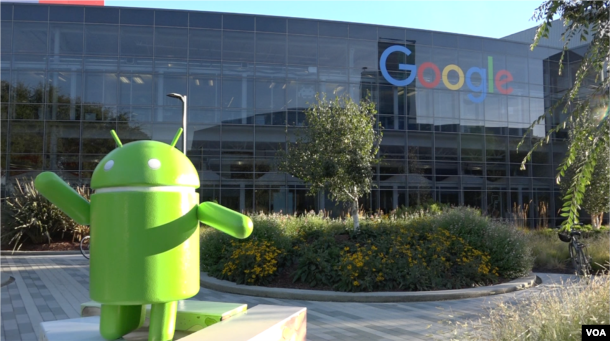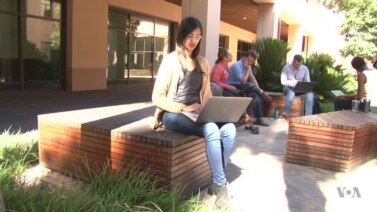
Some of the most successful technology business owners in Silicon Valley are immigrants. Silicon Valley is an area of northern California that is home to major technology companies like Apple, Google and Facebook.
For some immigrants, just living in the United States is the goal. But others have bigger dreams, like Qasar Younis.
Younis is the chief operating officer of Y Combinator. Y Combinator is an investment company. It gives money to new technology businesses in return for part ownership.
If the company is sold or offers its shares for sale to the public, Y Combinator can make a lot of money.
Younis is from the Punjab area of Pakistan. He says he was just a normal child. But, he says he believed from an early age that he could be successful in the U.S.
Another Pakistani immigrant, Dilawar Syed, owns the software company Freshdesk. It provides customer support services.
Syed said the people who live in Silicon Valley create big opportunities for themselves and each other.
“The idea of making an impossible, possible is the way we operate.”
And, he thinks Silicon Valley is unlike any other place.

"I think the valley is unique. In that ecosystem, there is an interesting mix of enabling factors that allow people to develop themselves, to push themselves, to take risks, fail often and then succeed quite often in a spectacular fashion.”
Many entrepreneurs around the world dream of coming to California and starting a business. But how do they do it?
There are organizations that can help.
Mohammad Ibrahim's Leaders is one such group. It invites leaders of start-ups from the Palestinian territories to attend a one-month program in Silicon Valley. Silicon Valley experts provide training and advice to the visitors.
They learn how to market and grow their businesses. They find ways to increase sales. And Ibrahim says Leaders can connect the start-ups that need money with investors.
Google has a similar program called Launchpad Accelerator. It offers problem-solving for people who started businesses in parts of Latin America and Asia. Those who come to the program spend two weeks at Google's headquarters and then get access to Google experts for six months.
Another way people get their start is through internships. Internships are mostly unpaid training positions at companies. Interns can gain valuable connections as well.
The tech company Mozilla, known for their web browser, offers three-month paid internships. Some Silicon Valley interns earn as much as $5,000 per month.
Nichole Gibson finds interns for Mozilla.
“So here at Mozilla we are looking for the best and the brightest, but we also focus on diversity and inclusion. So, we have a wide range of interns that we actually hire. Since we are an international company, we can hire interns from all over the world, which is great. We hire into non- technical and technical roles so we have a wide range of positions that they can apply for.”
I'm Dan Friedell.
Dan Friedell adapted this story for Learning English based on reporting by VOA's Vina Mubtadi and Saqib Islam. Caty Weaver was the editor.
Will you come to Silicon Valley to start a business one day? We want to know. Write to us in the Comments Section or on our Facebook page.
Words in This Story
start-up - n. a new business
opportunity - n. a chance to do something or act
spectacular - adj. causing wonder and admiration; very impressive
unique - adj. used to say that something or someone is unlike anything or anyone else
accelerator - n. an organization that helps a business improve
entrepreneur - n. a person who starts a business and is willing to risk loss in order to make money
diversity - n. the state of having people who are different races or who have different cultures in a group or organization
inclusion - n. the act of making something or someone part of a group



